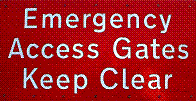Emergency fund is a vital part of financial planning. Building an Emergency fund is step 5 in our financial planning process. Last week we looked at why insurance is important in personal finance, emergency fund is similar to insurance and is just as important in your personal finance. There is some debate going on about how to structure the emergency fund, but there is no doubt that it is a very important aspect of your financial plan. The most common question is how much do I need in an emergency fund? We will get to that after we discuss, what an emergency fund is what it’s NOT and how to fund one.
What is an Emergency Fund?
As one can tell from the title it is a fund for emergencies. Now this always brings up the question of, what is an emergency? Although this is somewhat of a situational question, here is what I generally consider an emergency:
- Things that you could not have foreseen qualify as an emergency, so that trip to Cuba or that new car does NOT qualify as an emergency.
The funds purpose is to reduce the financial burden in hard times, so please do not waste it unless it’s an absolute emergency. I recommend having a written statement as to what qualifies as an emergency and give it at least 24 hours before you decide an event is an emergency.
How big should my Emergency Fund be?
This is subject to great debate, but general consensus is 3-6 months of income, I usually go with 3-6 months of expenses. Should it be 3 months or 6 months? That depends on your personal situation, if you are single with low debt and no dependents than 3 months would probably be enough, if you are married and have a larger mortgage then I would suggest 6 months. It comes down to your comfort level, what gives you peace of mind.
Where should my Emergency Fund be invested?
You have to understand that this fund needs to be easily accessible all the times on short notice, you never know when an emergency arises. This is not the money you invest in mutual funds or stocks, this fund sits in a regular high interest savings account NOT attached to your checking account. The point here is not growth but it’s safety and liquidity.
Can I use my line of credit as an emergency fund?
This is not a very good financial strategy, an emergency is the wrong time to get in debt. The concept of getting in debt to pay off other debt does not make a lot of sense. You also have to understand that creditors can change their terms at anytime, they could reduce your limit, increase your interest rate or totally cut of your line of credit. Now imagine any of that happening at the worst possible time, not a pleasant picture. The purpose of an emergency fund is to reduce risk, this strategy increases your risk.
How to start an Emergency Fund?
It’s very simple, if you already have some savings and they are not meant to pay off some kind of debt than you use that and build on top of it, if you do not have any savings GET STARTED! Start saving for the emergency fund, do not go buy the new LCD flat screen TV or that great undervalued stock deposit the money into your emergency fund account! Try to contribute to it as much as you can for the next few months, if you do it right you could probably have it done in about 5 months at the most. If you do not have anything left over at the end of the month to save, you have a big problem.
1. Open an account at a bank you are comfortable with
2. Start depositing money for the next few weeks to reach your target
3. Ones target is reached DO NOT TOUCH THE ACCOUNT!
It’s a simple 1-2-3 step process, get on it now.
Emergency fund is very similar to insurance, you do not see the value until you need it and when you need it, the emergency fund is invaluable.
Do not forget to Stumble this post!
